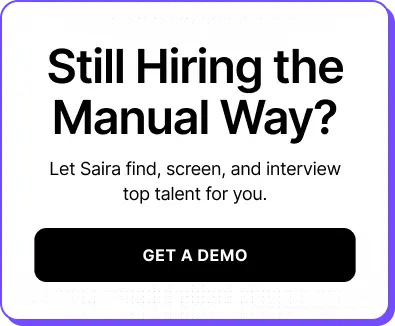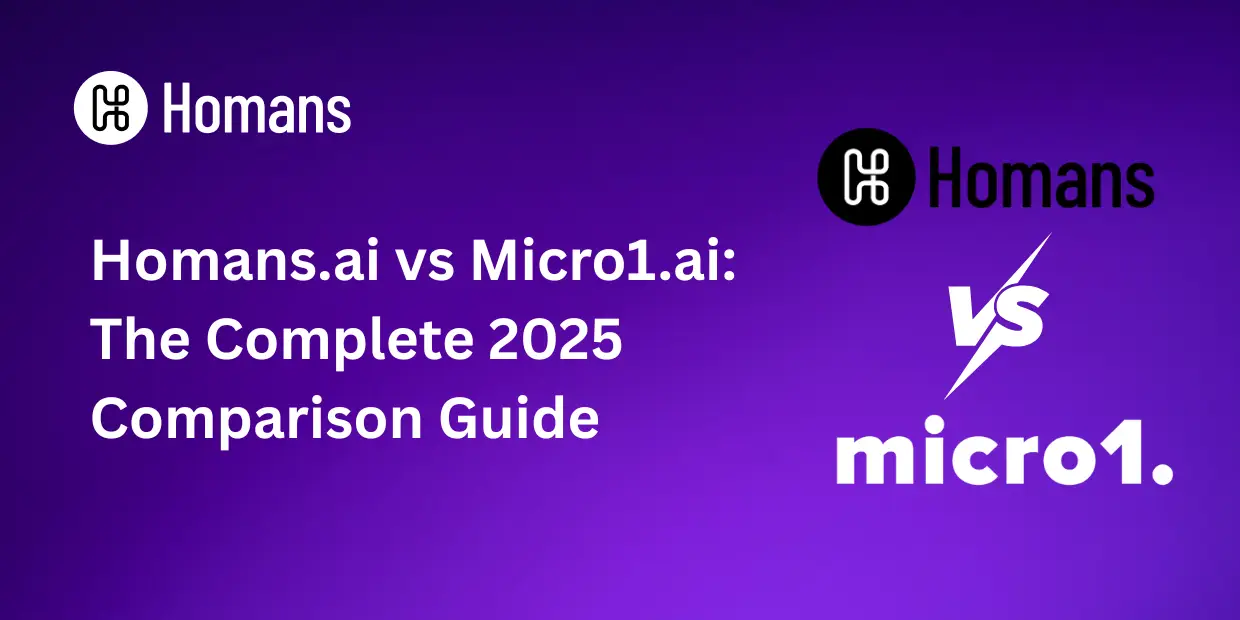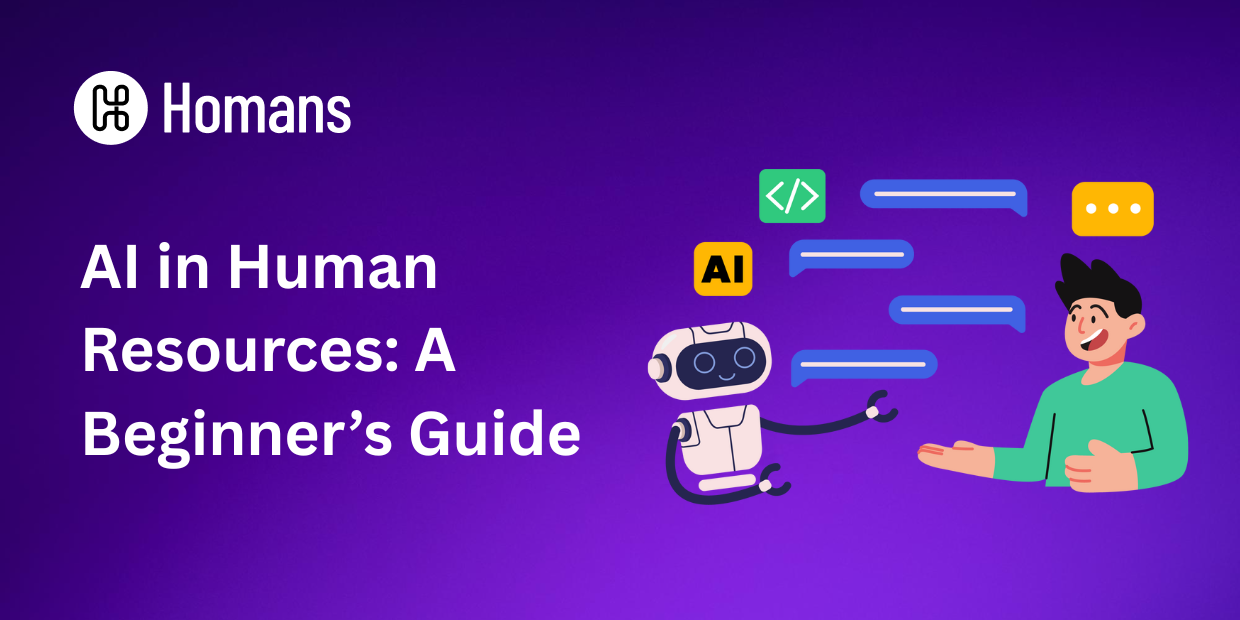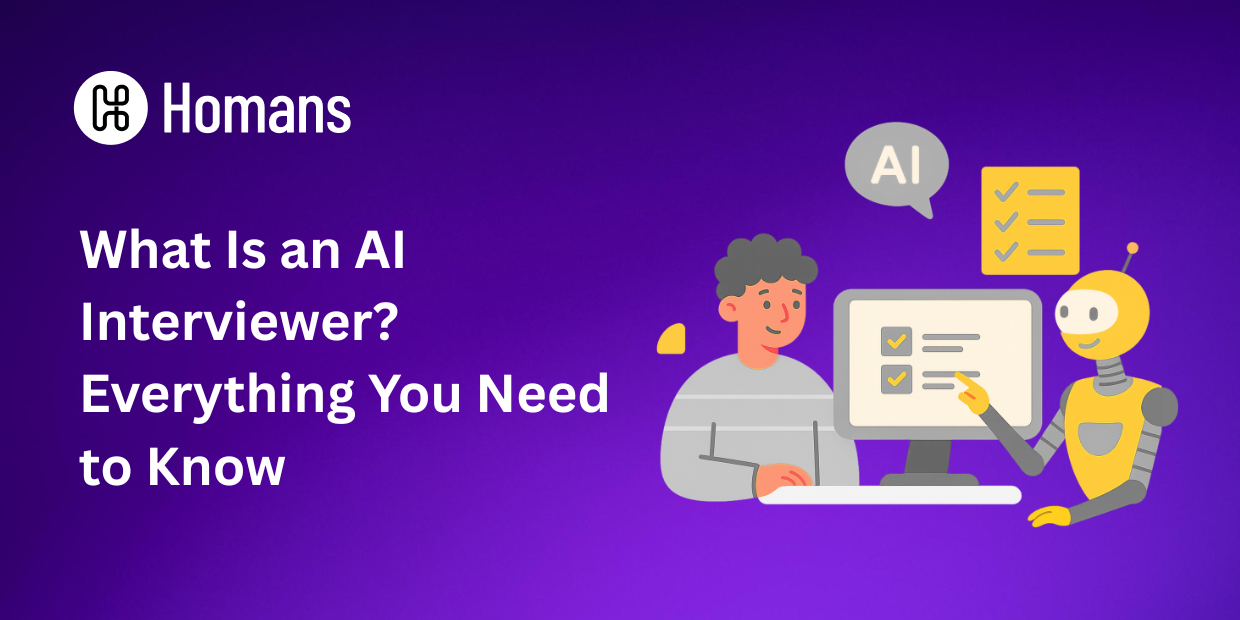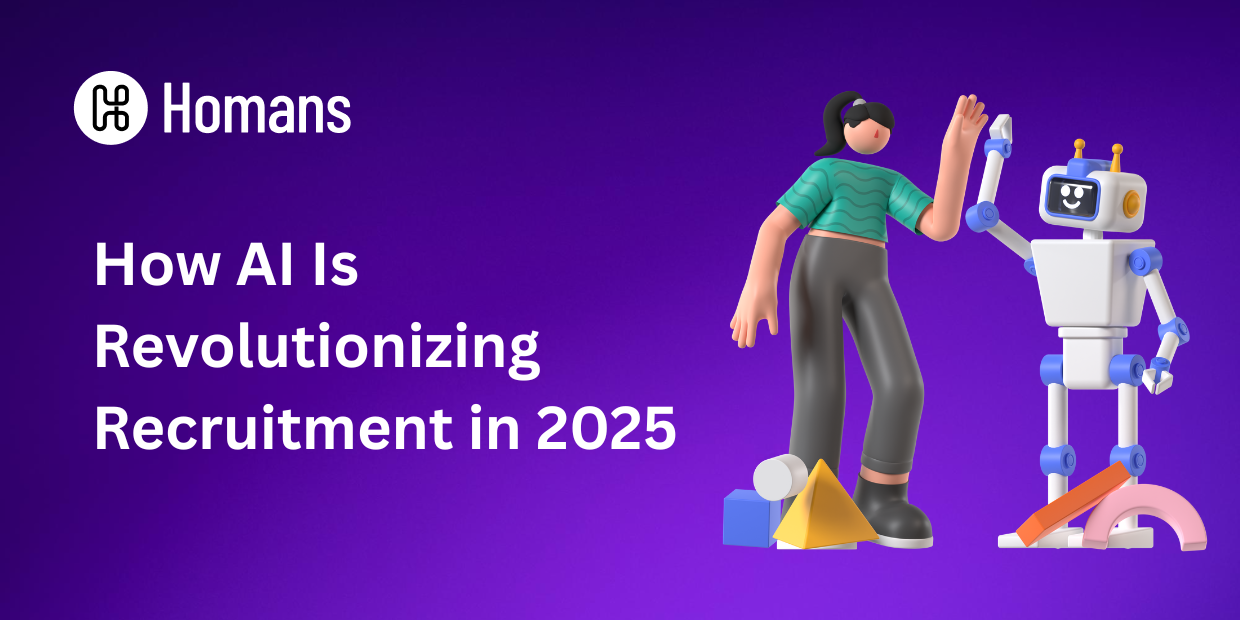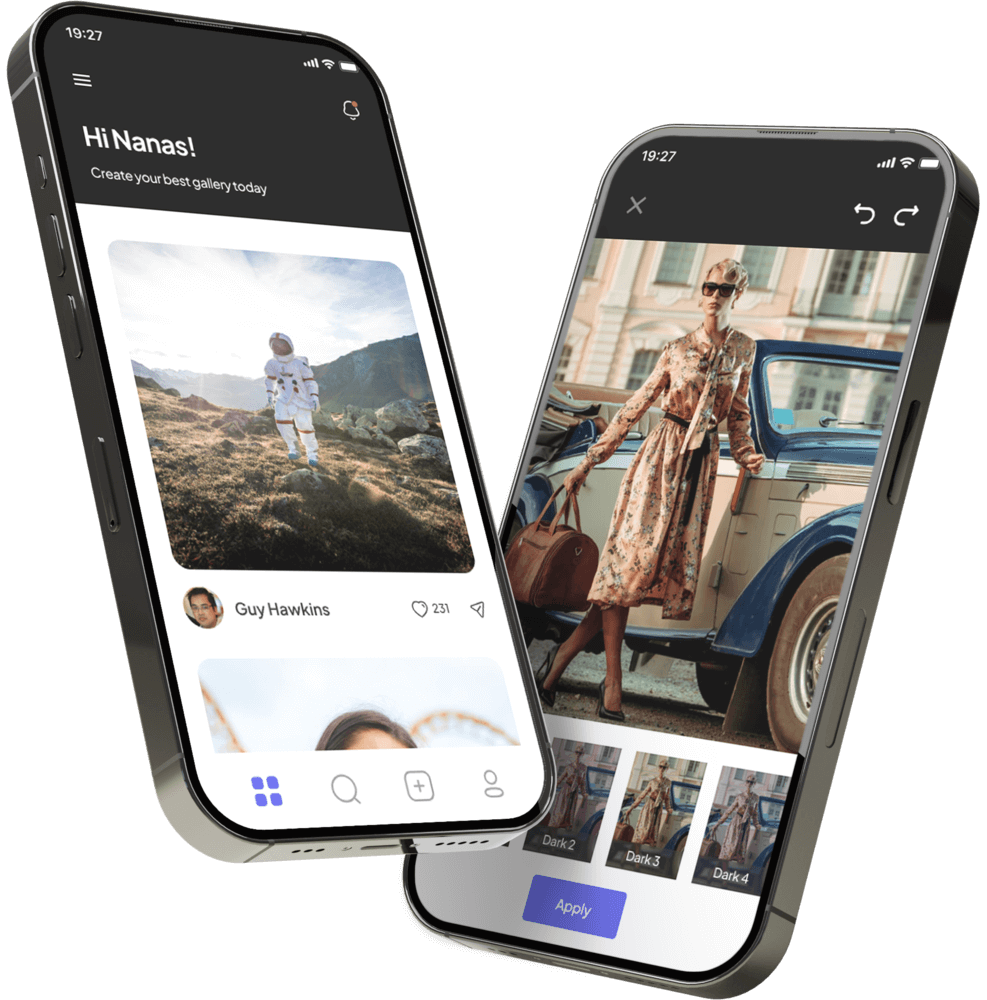Quick Verdict (2026)
Choose Homans AI if you want full-cycle hiring automation sourcing, multi-round interviews, and detailed report cards managed in one platform. Choose Micro1 AI if your priority is access to pre-vetted niche technical talent through a managed talent marketplace.This Homans AI vs Micro1 AI comparison breaks down pricing, features, automation depth, and ideal hiring use cases to help you make the right decision in 2025.
Introduction
If you’re evaluating next-generation AI recruiting platforms, two names might catch your eye: Homans.ai vs Micro1.ai. Both promise to use AI to streamline talent acquisition, but they are different in philosophy, features, risk, and ideal use cases. Below, you’ll find a side-by-side comparison to help you choose the right one.
Platform Overview: Understanding the Core Differences
Homans.ai: The AI-First Recruitment Revolution
Homans.ai is an AI workforce company that has built saira (Smart AI Recruitment Assistant), the world’s smartest AI recruiter. Unlike traditional recruiting tools, Homans.ai focuses on creating intelligent agents that automate high-impact business functions with remarkable precision. SAIRA conducts comprehensive multi-round interviews covering skill assessments, behavioral evaluation, and coding tests while maintaining a human-like interaction that candidates appreciate.
What makes Homans.ai unique is its all-in-one platform approach. SAIRA handles sourcing through TalentGPT, engages candidates via WhatsApp and email, conducts three rounds of interviews, and generates detailed report cards with scores, transcripts, and video recordings. The platform promises to hire 10x faster, reduce recruitment costs by 90%, deliver 200% quality improvement in report cards, and provide a 5x better candidate experience.
Micro1.ai: Global AI-Powered Talent Intelligence
Micro1.ai positions itself as “the AI platform for human intelligence” that aims to match one billion people with their dream roles. Founded in 2022, Micro1 has raised a $35M Series A funding and operates with a focus on connecting companies with pre-vetted global talent through their AI recruiter agent Zara.
The platform combines two core services: access to a pre-vetted talent pool of global professionals and Zara, an AI interviewer that conducts automated screening interviews. Micro1 has processed over 1 million applicants and conducted 400,000+ AI interviews, with the platform screening over 20,000 engineers monthly. The company has achieved significant growth, crossing $50 million in annualized revenue with projections to reach $100 million by late 2025.
| Category | Homans AI | Micro1 AI |
|---|---|---|
| Hiring model | AI recruiter (automation-first) | Talent marketplace |
| Interview rounds | Multi-round automated | Limited / assisted |
| Pricing | Transparent | Custom |
| Best for | Startups & scaling teams | Niche enterprise hiring |
Key Features Comparison
Below is a structured comparison of feature sets.
| Feature / Capability | Homans.ai / Saira | Micro1.ai |
| End-to-end recruiter automation | Yes. Saira can take over from JD upload → sourcing → outreach → interview → report & qualification | Partial. Micro1 focuses on sourcing, vetting, and AI interviewing, but may require human oversight / selection |
| Multi-round interviewing (skill/behavioral/coding) | Yes Saira supports three rounds automatically without human intervention | Yes Micro1 offers AI interviewing / asynchronous interview layers. |
| Fraud detection / proctoring / biometric checks | Yes Homans emphasizes cheat-proof proctoring, facial recognition, voice recognition, screen switching detection, behavior tracking | Micro1 mentions proctoring / assessment integrity in their AI interviewer offerings (though public detail is less complete) |
| Candidate outreach / engagement | Automated outreach via email, WhatsApp, (other channels) | Micro1 also handles outreach / candidate matching, though it’s less clear if WhatsApp or multiple channels are supported |
| Sourcing across multiple channels / platforms | Yes Homans’s “TalentGPT” sources broadly across platforms and geographies | Yes Micro1 markets its ability to source human intelligence at scale, though exact source channels are less public. |
| Report / insights / scoring | Yes Homans returns structured scores, highlights, decision-ready report cards, transcripts, recordings | Yes Micro1 provides AI-generated reports, transcripts, scoring of technical / soft skills. |
| ATS / API integrations | Yes Homans is “API ready” and “ATS compatible” | Micro1 likely supports API / integration for enterprise usage, though public documentation is limited |
| Role types supported (tech / non-tech) | Broad: works across tech & non-tech roles (Sales, HR, Support, etc.) | Primarily technical / specialized roles (software engineers, domain experts) in many reviews. |
| Customization of interviews / scripts | Homans allows custom interview questions, interview time windows, etc. | Micro1 likely supports role-specific interview configuration, though not heavily documented publicly |
| Support & account management | Homans offers staff access, usage reports, support incl. dedicated account manager in enterprise | Micro1 has client support and enterprise features; its exact support packages are not fully public |
| Security, privacy & data handling | Homans emphasizes proctoring, fraud detection, and likely secure data flows (though you’d need to validate compliance) | Micro1 claims high integrity vetting, proctoring, but also has raised concerns / negative reviews around data usage (see “risks” below) |
| Pricing / transparency | Homans shows a “Complete plan” at $49/month (intro) and an enterprise custom plan. (Screenshot provided) | Micro1’s public pricing is opaque clients often request a demo. |
| Trial / evaluation | Homans offers a 14-day trial on complete plan (per screenshot) | Micro1 in some reviews offers a 1-week trial per engineer hired. |
Use Cases & Ideal Audiences
Although Homans.ai and Micro1.ai are both AI-powered recruitment solutions, the way they deliver value is quite different. To help you decide, let’s look at practical scenarios where each platform shines.

When Homans.ai May Be the Better Choice
Homans.ai positions itself as a complete AI recruiter think of it as hiring an intelligent assistant who can source, screen, engage, interview, and report without needing half a dozen tools.
Ideal use cases include:
- High-volume hiring across departments
- If your company needs to hire dozens or even hundreds of candidates across various roles every month (engineers, designers, sales reps, HR professionals, etc.), Homans is designed to handle scale.
- Example: A fast-growing startup expanding to new cities needing 50+ hires in a quarter.
- If your company needs to hire dozens or even hundreds of candidates across various roles every month (engineers, designers, sales reps, HR professionals, etc.), Homans is designed to handle scale.
- Diverse role requirements (Tech + Non-Tech)
- Unlike many AI tools that only focus on software engineers, Saira (Homans’s AI recruiter) works equally well for non-technical roles.
- Example: A retail chain hiring store managers, customer support staff, and backend developers all through one platform.
- Unlike many AI tools that only focus on software engineers, Saira (Homans’s AI recruiter) works equally well for non-technical roles.
- Companies seeking predictable and transparent costs
- With pricing as low as $49/month (Complete Plan), it’s easy for startups, SMEs, or HR teams with tight budgets to adopt.
- Example: A small business that wants to test AI recruiting without committing to opaque enterprise pricing.
- With pricing as low as $49/month (Complete Plan), it’s easy for startups, SMEs, or HR teams with tight budgets to adopt.
- Organizations prioritizing fairness and compliance
- Saira generates transcripts, recordings, and structured scoring. Combined with fraud-proof proctoring, this ensures transparency and reduces hiring risks.
- Example: A company in financial services that must audit interviews for fairness and compliance.
- Saira generates transcripts, recordings, and structured scoring. Combined with fraud-proof proctoring, this ensures transparency and reduces hiring risks.
- Teams wanting to reduce recruiter workload
- If your recruiters spend hours chasing candidates, scheduling, and filtering “not a fit” profiles, Homans frees them up to focus on relationship-building and culture fit.
- Example: A 10-person HR team that needs automation to keep up with rapid growth.
- If your recruiters spend hours chasing candidates, scheduling, and filtering “not a fit” profiles, Homans frees them up to focus on relationship-building and culture fit.
When Micro1.ai May Be the Better Choice
Micro1.ai, on the other hand, is more focused on technical excellence and high-caliber human data pipelines. It’s especially relevant if your hiring needs are deep rather than wide.
Ideal use cases include:
- Sourcing specialized technical talent
- If you need top-tier engineers, data scientists, or domain experts vetted rigorously, Micro1 is optimized for this.
- Example: An AI startup building an LLM product that needs 20 expert Python engineers with domain-specific experience.
- If you need top-tier engineers, data scientists, or domain experts vetted rigorously, Micro1 is optimized for this.
- AI labs & enterprises requiring domain expertise
- Micro1 positions itself as a bridge between enterprises and highly specialized human data contributors.
- Example: A research lab sourcing annotators and subject matter experts for machine learning datasets.
- Micro1 positions itself as a bridge between enterprises and highly specialized human data contributors.
- Custom engagement for high-value hires
- Unlike Homans’s plug-and-play model, Micro1 works more like a tailored service with custom pricing. This makes sense if you’re hiring fewer but extremely critical people.
- Example: A Fortune 500 firm hiring niche cybersecurity professionals for a sensitive project.
- Unlike Homans’s plug-and-play model, Micro1 works more like a tailored service with custom pricing. This makes sense if you’re hiring fewer but extremely critical people.
- Enterprise-scale organizations with budget flexibility
- If you’re comfortable negotiating custom contracts, SLAs and are less price-sensitive, Micro1 might fit better.
- Example: A multinational that doesn’t mind bespoke vendor agreements for long-term talent pipelines.
- If you’re comfortable negotiating custom contracts, SLAs and are less price-sensitive, Micro1 might fit better.
- Projects requiring human data pipelines beyond hiring
- Micro1 doesn’t just do recruitment it also supplies high-quality vetted human intelligence for projects like labeling, annotation, or crowd-sourced expertise.
- Example: A company training medical AI that needs annotated radiology images vetted by domain experts.
- Micro1 doesn’t just do recruitment it also supplies high-quality vetted human intelligence for projects like labeling, annotation, or crowd-sourced expertise.
Pricing & Cost Transparency
Pricing is often the deciding factor when teams compare Homans.ai vs Micro1.ai. Recruitment technology isn’t just about features, it’s about whether the cost structure fits your hiring volume, predictability needs, and budget flexibility.
Here’s a breakdown of how both companies approach pricing:
Homans.ai Pricing
Homans has one of the most transparent and startup-friendly pricing models in the AI hiring space. It offers two clear tiers:
1. Complete Plan – $49/month (intro offer)
- First month discounted at $49, then renews at $99/month.
- Comes with a 14-day free trial that includes 5 AI interviews so you can test before committing.
- Ideal for startups, small businesses, or HR teams experimenting with AI recruitment.
What’s included:
- 30 AI interviews per month (covers sourcing + vetting + structured interviews).
- 3 fully automated interview rounds (skills, behavioral, coding).
- Ability to set custom interview questions.
- Bulk candidate invites via email.
- Candidate tracking & pipeline management.
- AI-generated report cards with structured scoring.
- Automated engagement (WhatsApp + Email reminders, re-invitations, bulk invites).
- Limited staff access (3 seats).
- Support via email.
Who should choose this?
- SMEs, startups, or agencies hiring 5–30 roles per month.
- Teams that want to replace manual screening with automation without heavy upfront costs.
- Recruiters who want to test AI-based hiring workflows before scaling.
2. Enterprise Plan – Custom (as low as $2 per interview)
- Designed for organizations with large hiring volumes.
- Pricing starts as low as $2 per interview when scaled to 500+ AI interviews monthly.
- Requires booking a demo to customize based on needs.
What’s included:
- Everything from the Complete Plan, plus:
- 500+ AI interviews per month.
- Custom branding (reports, subdomain, email domain).
- Full ATS integration.
- Full API suite (seamless workflows and automation).
- Unlimited staff access.
- Dedicated account manager for priority support.
- 500+ AI interviews per month.
Who should choose this?
- Enterprises scaling hiring across multiple business units.
- Staffing firms or BPOs running bulk hiring pipelines.
- Any company that values custom workflows, branding, and integrations.
Micro1.ai Pricing
Micro1.ai takes a custom-only pricing approach, which means you won’t find a clear monthly subscription on their website. Instead, pricing is revealed during sales calls or demos.
What’s publicly known:
- No transparent standard plan is listed.
- Reviews suggest Micro1 sometimes offers a 1-week free trial per engineer hired.
- Pricing likely varies based on:
- The number of engineers/talent required.
- Seniority or specialization of candidates.
- Type of engagement (one-time vs. long-term hiring support).
- The number of engineers/talent required.
Implication:
- Micro1 is better suited for enterprises or specialized hiring needs where budgets are flexible and transparency is less of a concern.
- For smaller firms or teams testing AI recruitment for the first time, the lack of upfront pricing may be a hurdle.
Homans vs Micro1: Cost Perspective
| Factor | Homans.ai | Micro1.ai |
| Pricing Transparency | Clear plans ($49/mo starter, $99 renewal, custom enterprise) | Opaque, demo required |
| Trial | 14-day free trial with 5 AI interviews | 1-week free trial per engineer (review-based) |
| Entry Cost | Low barrier ($49/month) | Higher entry barrier (likely $$$/candidate) |
| Scalability | Scales with predictable per-interview costs ($2/interview in enterprise tier) | Scales with enterprise contracts, but costs not public |
| Best for | Startups, SMEs, staffing firms wanting predictable budgets | Enterprises needing custom sourcing for specialized talent |
Takeaway
- If you want clarity, predictability, and a low-risk entry point, Homans.ai is the clear winner.
- If you have deep pockets, highly specialized technical hiring needs, and prefer bespoke vendor relationships, Micro1.ai may make sense.
Security, Privacy & Risk Issues
When you use AI tools for hiring, you’re not just dealing with software. You’re dealing with people’s personal data resumes, interview recordings, test answers, facial recognition data, and more. Mishandling this data can harm your company’s reputation, lead to legal trouble, or cause candidates to lose trust. That’s why comparing Homans.ai vs Micro1.ai on this front is very important.
Here’s what you should know:
1. Data Protection & Compliance
- Homans.ai:
Homans positions itself as an AI workforce company, and with that comes responsibility. While detailed compliance certifications (like GDPR or CCPA) are not fully published yet, Homans openly shares how its AI recruiter (Saira) records interviews, stores transcripts, and integrates with ATS systems. This transparency makes it easier for you to ask the right compliance questions before signing a contract. - Micro1.ai:
Micro1 does not publicly list compliance certifications either, and since their pricing and operations are more opaque, you’ll need to specifically ask about how they comply with privacy laws in your region (GDPR in Europe, CCPA in California, DPDP Act in India, etc.). For enterprises with strict regulations, this could mean extra due diligence.
What it means for you: Always confirm if the vendor complies with local and global privacy regulations. If you handle candidate data across countries, this becomes even more critical.
2. Use of Candidate Data
- Homans.ai:
Homans focuses heavily on structured interviews, transcripts, and proctoring, but it emphasizes that all data is tied to the hiring process. You stay in control of report cards, scores, and candidate information. - Micro1.ai:
Some negative reviews online claim that Micro1 may post fake job listings or use candidate video/voice data for AI training without clear consent. While these claims are not officially confirmed, they raise questions about how candidate data is used behind the scenes.
What it means for you: Before using either platform, ask for a clear data usage policy. Ensure candidate data is only used for your hiring process, not for unrelated AI training or marketing.
3. Trust & Transparency
- Homans.ai:
With upfront pricing and detailed feature breakdowns, Homans shows a stronger level of transparency. You know what you’re paying for and what you’re getting. - Micro1.ai:
Micro1 has many positive reviews praising its AI interviewer “Zara,” but it also has mixed reviews that raise concerns about authenticity and data practices. The lack of public pricing also adds to the trust gap.
What it means for you: In sensitive industries (like banking, healthcare, or government), transparency is critical. Choose a vendor you feel you can hold accountable.
4. Proctoring & Fraud Detection
Both platforms claim to fight cheating in interviews, but their methods may vary.
- Homans.ai:
Includes face recognition, voice recognition, eye movement analysis, and screen switching detection. This means it’s harder for candidates to cheat on assessments. - Micro1.ai:
Also offers AI-based proctoring and monitoring, but the details are less open compared to Homans.
What it means for you: If fair, fraud-free hiring is a top priority, ask for a demo of the proctoring features. See how each system handles cheating in real time.
5. Vendor Accountability
- Homans.ai:
With clear pricing and service tiers, you can hold Homans accountable to what’s promised. For enterprise clients, they offer dedicated account managers and API access, which makes integration and oversight easier. - Micro1.ai:
Since pricing and terms are customized, accountability depends heavily on your contract negotiation. You must ensure clauses for data deletion, audit rights, and service guarantees are written into the SLA (Service Level Agreement).
What it means for you: With Micro1, you’ll need stronger legal contracts. With Homans, accountability is more straightforward.
6. Bias, Fairness & Auditability
AI in hiring can unintentionally bring bias if not managed well.
- Homans.ai:
Provides transcripts, structured scores, and recordings, which allow audit trails. Recruiters can review decisions and reduce bias. - Micro1.ai:
Provides reports and scores too, but since details are less open, you need to confirm whether audit logs are available for your compliance needs.
What it means for you: If fairness and explainability matter (for DEI initiatives or compliance laws like NYC’s Local Law 144), ask specifically about bias audits and explainability features.
Final Take on Security
- Choose Homans.ai if you want more transparency, clearer pricing, stronger visible proctoring tools, and easier accountability.
- Choose Micro1.ai only if you are comfortable negotiating strict contracts, demanding compliance certifications, and auditing their practices directly.
If your company operates in a regulated industry or has strict HR compliance needs, Homans is the safer bet. If you’re an enterprise with large budgets and want bespoke services, you can explore Micro1 but must negotiate carefully.
Customer Success and Market Reputation
Homans.ai Client Success Stories
- TechFin Labs: Replaced 3-4 day manual screening with instant AI processing
- CloudNova: 90% of initial interviews handled by AI with precise scoring
- Loopstack: Onboarded in under a day, qualified candidates within 24 hours
- Codexa Systems: Improved hiring accuracy through structured behavioral analysis
Micro1.ai Market Impact
- Deel: Increased interview pass rates from 10% to 50%, reduced costs by 80%
- Legal Soft: Improved EBITDA margins by 30%, saved $400,000+ annually
- Scale: Conducts 10,000 monthly interviews with reduced staff from 33 to 12
- Achieved $500 million valuation with strong revenue growth trajectory
Strengths & Weaknesses: Homans.ai vs Micro1.ai
When comparing two platforms, it’s important to move beyond features and look at the bigger picture: what they’re really good at, and where they might fall short. Below is a deep dive into the strengths and weaknesses of both solutions.
Homans.ai Strengths
- Complete Recruiter Automation
- Homans.ai’s first product, Saira, is built to cover the entire recruitment cycle sourcing, candidate outreach, interviews (skills + behavioral + coding), report generation, and shortlisting.
- This end-to-end automation means you don’t have to juggle 5–6 tools (LinkedIn for sourcing, Calendly for scheduling, Google Meet for interviews, Excel for tracking, etc.).
- Homans.ai’s first product, Saira, is built to cover the entire recruitment cycle sourcing, candidate outreach, interviews (skills + behavioral + coding), report generation, and shortlisting.
- Multi-Role Coverage (Tech + Non-Tech)
- Many AI recruitment tools only focus on engineering talent. Homans goes broader. It works equally well for design, sales, HR, customer support, and managerial positions.
- This makes it more versatile for companies that hire across departments, not just tech startups.
- Many AI recruitment tools only focus on engineering talent. Homans goes broader. It works equally well for design, sales, HR, customer support, and managerial positions.
- Transparent Pricing
- Homans.ai is one of the few AI recruiters that clearly publishes its pricing ($49/month starter plan, $2 per interview in enterprise).
- This helps startups, SMEs, and recruiters test it without worrying about hidden costs. It lowers the barrier to entry compared to competitors like Micro1.ai.
- Homans.ai is one of the few AI recruiters that clearly publishes its pricing ($49/month starter plan, $2 per interview in enterprise).
- Auditability & Trust
- Every interview can be recorded (video/audio), transcripts are generated, and structured report cards are created.
- This transparency builds trust with hiring managers and helps in compliance with laws or DEI requirements.
- Every interview can be recorded (video/audio), transcripts are generated, and structured report cards are created.
- Fraud-Proof Proctoring
- Homans.ai adds layers of fraud detection: face recognition, voice recognition, eye-movement analysis, and screen-switching detection.
- This reduces the chances of candidates cheating during assessments.
- Homans.ai adds layers of fraud detection: face recognition, voice recognition, eye-movement analysis, and screen-switching detection.
Weaknesses
- Less Specialized for High-End Technical Experts
- While Homans can recruit engineers, its sweet spot is automation and scale. For niche, highly specialized hires (like senior AI researchers, cryptography experts, etc.), it may not be as curated as Micro1.
- While Homans can recruit engineers, its sweet spot is automation and scale. For niche, highly specialized hires (like senior AI researchers, cryptography experts, etc.), it may not be as curated as Micro1.
- Enterprise Customization Still Needed
- For very large enterprises, Homans might require more integrations, customization, or onboarding support. While it offers an Enterprise plan, it may not yet match the bespoke services of Micro1.
- For very large enterprises, Homans might require more integrations, customization, or onboarding support. While it offers an Enterprise plan, it may not yet match the bespoke services of Micro1.
- New Player in the Market
- Homans.ai is a growing company, which means some enterprise clients may want to see a longer track record before adopting it at scale.
- Homans.ai is a growing company, which means some enterprise clients may want to see a longer track record before adopting it at scale.
Micro1.ai Strengths
- Deep Focus on Technical Talent
- Micro1.ai positions itself as a hub for high-caliber engineers and domain experts. Its vetting process is rigorous, which appeals to companies that need quality over quantity.
- If you’re hiring developers for cutting-edge AI or specialized projects, Micro1 often emphasizes this niche strength.
- Micro1.ai positions itself as a hub for high-caliber engineers and domain experts. Its vetting process is rigorous, which appeals to companies that need quality over quantity.
- High-Fidelity Human Data Pipelines
- Beyond recruitment, Micro1 offers “human data” pipelines meaning it can source subject matter experts, annotators, or niche talent for projects like AI training datasets.
- This makes it attractive to AI labs or research organizations.
- Beyond recruitment, Micro1 offers “human data” pipelines meaning it can source subject matter experts, annotators, or niche talent for projects like AI training datasets.
- Curated Talent Pools
- Many reviews highlight Micro1’s ability to connect businesses with vetted engineers quickly.
- This “curation” angle means less noise compared to platforms where anyone can apply.
- Many reviews highlight Micro1’s ability to connect businesses with vetted engineers quickly.
- Enterprise-Grade Engagements
- Since it works primarily on custom contracts, Micro1 is often tailored to enterprises with complex or high-value hiring needs.
- This flexibility means companies can negotiate specific deliverables, SLAs, or sourcing strategies.
- Since it works primarily on custom contracts, Micro1 is often tailored to enterprises with complex or high-value hiring needs.
Weaknesses
- Opaque Pricing
- Unlike Homans, Micro1 does not publish pricing. Everything is custom and negotiated during a sales call.
- For startups or small businesses, this lack of clarity makes it harder to plan budgets.
- Unlike Homans, Micro1 does not publish pricing. Everything is custom and negotiated during a sales call.
- Possible Data Privacy Concerns
- Some negative reviews raise concerns about fake job listings or data misuse (e.g., using candidate interviews to train AI without clear consent). While unverified, these reviews point to the need for extra caution and contractual safeguards.
- Some negative reviews raise concerns about fake job listings or data misuse (e.g., using candidate interviews to train AI without clear consent). While unverified, these reviews point to the need for extra caution and contractual safeguards.
- Limited Breadth (Mostly Technical Roles)
- Micro1 seems strongest in engineering and technical hiring. If your company needs to recruit across multiple functions (sales, operations, HR, customer service), you may still need another platform.
- Micro1 seems strongest in engineering and technical hiring. If your company needs to recruit across multiple functions (sales, operations, HR, customer service), you may still need another platform.
- Heavy Reliance on Vendor Contracts
- Since Micro1 doesn’t have standardized pricing or packages, everything comes down to what’s agreed upon in the contract.
- Without strong legal negotiation, companies could face challenges with service levels, data handling, or hidden costs.
- Since Micro1 doesn’t have standardized pricing or packages, everything comes down to what’s agreed upon in the contract.
- Risk of Overpromising
- Some customer feedback suggests that while Micro1 promises high vetting standards, delivery may sometimes fall short, leading to mismatched expectations.
AI Recruiter Buyer’s Checklist (Simple & Detailed)
1) Goals & Fit
- ☐ What problem am I solving first (speed, cost, quality, no-shows, interviewer bandwidth)?
- ☐ How many hires per month do we expect (now vs. peak)?
- ☐ Which roles do we hire: tech, non-tech, both?
- ☐ Do we need an all-in-one tool (source → interview → shortlist) or just parts of the funnel?
Tip: If you need broad, end-to-end automation across many roles like tech, non-tech, short-list platforms that do the whole flow (e.g., Homans).
If you mainly need deeply vetted senior engineers, focus on specialist vendors (e.g., Micro1-style services).
2) Sourcing & Outreach
- ☐ Can it source across multiple platforms (job boards, communities, profiles)?
- ☐ Is there AI-assisted search (by skills, projects, domains, geos)?
- ☐ Does it automate outreach (Email, WhatsApp, LinkedIn) and re-invites?
- ☐ Can we personalize messages at scale (templates, variables, A/B tests)?
- ☐ Opt-out handling and compliance for messaging?
3) Screening & Matching
- ☐ Does it auto-screen resumes and give a JD ↔ resume match score?
- ☐ Can we set knockout questions and must-have skills?
- ☐ Are there structured scorecards (skills, soft skills, communication)?
- ☐ Is the ranking/explanation visible so recruiters trust the list?
4) Interviews (AI-led)
- ☐ How many rounds are supported (skill, behavioral, coding)?
- ☐ Can we add custom interview questions and time windows?
- ☐ Are video + audio recordings and full transcripts available?
- ☐ Can hiring managers review highlights quickly (clips, summaries)?
- ☐ Does it support both tech & non-tech roles?
5) Anti-Cheating & Integrity
- ☐ Proctoring: face/voice verification, eye-movement, screen switching?
- ☐ Environment checks: background noise, second person detection?
- ☐ Question pool/randomization for repeat candidates?
- ☐ Clear incident flags in the report (what was detected, when)?
6) Reports & Decision Support
- ☐ One-page report card with overall rating + skills breakdown?
- ☐ Links to recordings, transcripts, and timestamps?
- ☐ Compare candidates side-by-side?
- ☐ Export/share to ATS, email, or PDFs for panels?
7) Integrations & Workflow
- ☐ ATS integration (Greenhouse, Lever, Zoho, etc.) and 2-way sync?
- ☐ APIs / webhooks for custom automations?
- ☐ Calendar/scheduling integration (Google/Microsoft)?
- ☐ SSO (Okta, Google Workspace, Azure AD) for secure access?
8) Security, Privacy & Compliance
- ☐ Data residency options? Encryption at rest/in transit?
- ☐ Compliance posture (GDPR, CCPA, DPDP-India, SOC 2/ISO if applicable)?
- ☐ Data usage: Is candidate data used only for my hiring, not for vendor model training?
- ☐ Deletion/Retention policy (who controls, how fast, audit trail)?
- ☐ Bias monitoring / audit logs / explainability for decisions?
9) Candidate Experience
- ☐ Mobile-friendly interviews; no heavy installs?
- ☐ Clear time expectations, reminders (WhatsApp + email), re-invites?
- ☐ Human handoff if needed (escalation to recruiter)?
- ☐ Accessibility (screen readers, captions, slow connections)?
10) Admin, Roles & Governance
- ☐ Seat management (recruiters, HM, view-only)?
- ☐ Custom branding (logo, domains, report look-and-feel)?
- ☐ Multi-team / multi-BU support and data separation?
- ☐ Usage reports and audit trails for compliance?
11) Pricing & ROI
- ☐ Transparent pricing? Trial included?
- ☐ What’s included in the base plan (interviews/month, seats, channels)?
- ☐ Overage rates or per-interview cost at scale?
- ☐ Enterprise: volume pricing (e.g., “as low as $2/interview”), API/ATS included?
- ☐ ROI math: time-to-hire, recruiter hours saved, agency spend avoided.
Quick formula:
Savings per month ≈ (Manual screening hours saved × blended hourly rate) + (agency fees avoided) − (subscription + overages)
12) Support & Success
- ☐ Support channels (email, chat, phone). SLAs?
- ☐ Dedicated account manager for enterprise?
- ☐ Onboarding/training, best-practice playbooks?
- ☐ Migration help (import candidates, jobs, scorecards)?
13) Proof Before You Buy (Pilot Plan)
- ☐ 14-day or time-boxed pilot with real roles (not just a sandbox)?
- ☐ Success criteria defined upfront (e.g., 20 qualified interviews, shortlist within 48 hrs, <5% no-shows)?
- ☐ Security/Data-processing addendum signed for the pilot?
- ☐ Executive summary after pilot with cost/benefit snapshot?
14) Red Flags (Pause & Probe)
- ☐ No public pricing or unclear inclusions (ask for all-in TCO).
- ☐ Vague data-usage answers (insist on a no-training clause).
- ☐ Limited visibility into proctoring (ask for a live demo).
- ☐ No transcripts/recordings or weak scoring transparency.
- ☐ Contract lacks data deletion, SLAs, or audit rights.
15) Simple Scoring Sheet (use in demos)
Give each item 0–2 points (0 = missing, 1 = basic, 2 = strong).
- Sourcing & Outreach: ____ / 10
- Screening & Matching: ____ / 10
- Interviews & Reports: ____ / 10
- Anti-Cheating: ____ / 10
- Integrations & API: ____ / 10
- Security & Compliance: ____ / 10
- Candidate Experience: ____ / 10
- Pricing & ROI: ____ / 10
- Support & Success: ____ / 10
Total: ____ / 90 → (80–90 = excellent, 65–79 = good, <65 = dig deeper)
Final Words: Which One Should You Choose?
Both Homans.ai and Micro1.ai are powerful players in the AI recruitment space, but they’re built for different kinds of hiring needs.
- Choose Homans.ai if you want a complete AI recruiter that handles everything sourcing, outreach, structured interviews, scoring, transcripts, fraud detection, and reporting. It’s ideal for startups, SMEs, and enterprises that want predictable pricing, faster hiring, and automation across both tech and non-tech roles. Homans gives you transparency, clear ROI, and scalability without needing multiple tools.
- Choose Micro1.ai if your main priority is finding a small number of highly specialized technical experts (like senior engineers or domain experts) and you don’t mind negotiating custom contracts and pricing. It’s best for enterprises, AI labs, or research projects where depth of technical vetting matters more than breadth of hiring.
Why Homans.ai is the Safer Bet for Most Teams
- Transparency – Clear pricing ($49/month starter, $2 per interview in enterprise). No hidden surprises.
- End-to-End Automation – Covers the whole funnel, not just parts of it.
- Breadth of Roles – Works for tech and non-tech, making it more versatile.
- Auditability & Compliance – Recordings, transcripts, and fraud detection build trust.
- Faster ROI – Perfect for teams that want results in weeks, not months.
If you’re comparing purely on value, speed, and ease of use, Homans.ai is the best choice for 80% of organizations. Micro1.ai has its strengths in niche, high-end technical hiring, but for most businesses looking to scale hiring without scaling costs, Homans.ai delivers more reliability and clarity.
Conclusion
Both Homans vs micro1 platforms offer powerful AI recruiting solutions, but they serve different market segments. Homans.ai vs micro1.ai comparison reveals that Homans.ai provides exceptional value for startups and growing companies with its affordable pricing and comprehensive features. Micro1.ai, while more expensive, delivers enterprise-grade capabilities with superior compliance, global reach, and scalability.
For most growing businesses, Homans.ai offers the better value proposition with its $49 starting price, comprehensive interview system, and rapid implementation. However, large enterprises with complex compliance requirements and global hiring needs will find Micro1.ai’s robust infrastructure and extensive integrations worth the premium cost.
The choice ultimately depends on your specific requirements: budget constraints, hiring volume, compliance needs, and global expansion plans. Both platforms are legitimate leaders in AI recruiting, and either choice will significantly improve your hiring efficiency compared to traditional recruitment methods.
Consider starting with a free trial of both platforms to experience their interfaces and capabilities firsthand before making your final decision.
Frequently Asked Questions (FAQs)
Is Homans.ai better than Micro1.ai?
Both platforms serve AI-assisted hiring needs, but they’re optimized for different priorities. Homans.ai focuses on full-cycle hiring automation, including sourcing, interviews, and report cards, while Micro1.ai emphasizes access to pre-vetted niche technical talent through a managed marketplace. Your choice should depend on whether you want a self-serve automation platform (Homans.ai) or a talent marketplace (Micro1.ai).
What’s the difference in pricing between Homans.ai and Micro1.ai?
Homans.ai offers transparent pricing plans with options suited for startups, scaling teams, and enterprises, allowing you to compare costs easily online. Micro1.ai’s pricing is typically custom and quoted on request, often tailored to larger enterprise budgets. For precise figures, check their pricing page or request a demo.
What are good alternatives to Micro1.ai?
Aside from Homans.ai, alternatives to Micro1.ai include other AI recruiting platforms that focus on automation or talent marketplaces. Some options to explore are:
AI recruiting automation tools like Homans.ai
Specialized talent marketplaces
Recruitment CRMs with AI sourcing capabilities
Each differs in features and pricing, so match them to your hiring priorities.
What is the best AI recruiter platform in 2025?
There’s no single “best” for everyone, but platforms are optimized for different needs. Homans.ai stands out for full automation, covering sourcing, interviewing, and reporting. Micro1.ai is strong in technical/hard-to-find talent pipelines. Evaluate both against your team size, role complexity, and workflow requirements.
How does an AI recruiter differ from a talent marketplace?
An AI recruiter (like Homans.ai) automates the hiring workflow—sourcing, screening, interviewing, and evaluation—within one system. A talent marketplace (like Micro1.ai’s model) connects you with pre-vetted candidates or expert networks but may involve manual steps or outsourced sourcing. Understanding this difference helps you choose the right solution for your hiring process.
Can Homans.ai and Micro1.ai be used together?
Yes in some hiring stacks, teams use an AI recruiter (for ongoing automation) alongside a talent marketplace (for niche roles or urgent hiring needs). Combining platforms can give both broad automation and specialized talent access, depending on your strategy.
What hiring use cases are best for Homans.ai vs Micro1.ai?
Homans.ai: Best for scaling teams, broad role coverage (tech + non-tech), and automated workflows.
Micro1.ai: Best for specialized technical hiring where curated experts or hard-to-source talent are critical.
Does Homans.ai offer structured interview report cards?
Yes, Homans.ai provides detailed interview report cards with scoring, transcripts, and analytics, helping hiring managers make data-backed decisions. This structured output is one of the key differences from marketplace-based models.
Will this comparison help me choose the right tool for 2025 hiring?
Absolutely! This Homans.ai vs Micro1.ai comparison covers features, use cases, pricing, automation depth, and hiring scenarios tailored to 2025 needs—so you can make a strategic choice rather than a guess.

